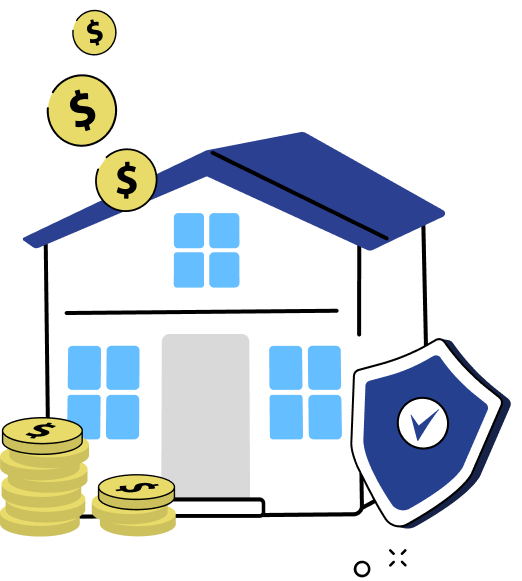
A Fixed-Rate Mortgage features a set interest rate that stays the same through the entire term of the loan.
The rate included on your closing disclosure is the same rate you’ll have for the length of your repayment term, unless you refinance your mortgage.
Two common fixed-rate options are 15- and 30-year mortgages. Unlike some other types of mortgage loans that have variable rates, fixed-rate loans offer more stability and predictability to help you better budget for housing costs.
Pro:
Predictable monthly payments.
Con:
Potential future refinance to take advantage of lower rates.
Best For:
Buyers planning to stay in their homes longer.
Pre-qualification and pre-approval sound alike, but generally only one — pre-approval — positions you as a serious buyer with real estate agents and sellers.
In today’s hyper-competitive market, agents generally require you to be pre-approved prior to showing you properties.
For the pre-qualification phase, you describe your credit, debt, income and assets. Some lenders also do a credit check, which is an inquiry on your credit report. Based on your overall financial picture, the lender estimates how much you may be able to borrow.
Getting pre-qualified can give you a sense of your financial readiness and set the stage for various mortgage options. Pre-qualification is often the initial step for first-time home buyers who are just testing the waters of homeownership.


A mortgage pre-approval takes the process to the next level and is what separates ‘thinkers’ from ‘serious homebuyers.’ A pre-approval requires proof of your financial history and stability via verification of your income, employment, assets and debts, as well as a copy of your credit report. You will need to provide documentation in the form of W-2s, current pay stubs, a summary of your assets, and your total monthly expenses, as well as, if applicable, a copy of any current mortgage statements. The process concludes with the lender providing you with a pre-approval letter, which confirms the amount and type of mortgage and terms the lender is willing to offer you.
Your mortgage pre-approval will help your real estate agent determine the appropriate range of listings to show you, and it will prove to sellers and their agents that you are a serious buyer with proven purchasing power.
While in today’s marketplace most offers will not be accepted without a pre-approval, they are not failproof. Once you find a home and make a winning offer, your application will undergo a full mortgage underwriting, at which time your lender will verify your income, assets, debt and property details in order to issue final approval for your mortgage. The entire closing process can take between 30 – 45 days to complete.
To view a new purchase or re-finance application and see a list of necessary documentation, please visit Police Mortgage.
Pre-Qualification is an initial, less formal phase that estimates how much you may be able to borrow, based on a mostly informal evaluation of your finances. Pre-Qualification is a good first step when you’re not sure whether you’re financially ready to buy a home, but carries no weight with realtors/sellers.
Pre-Approval is a more formal phase involving documentation of financial information and a credit check that carries weight with real estate agents and buyers. If you’re ready to start shopping for a new home, securing your pre-approval is the first step in the process.
Pre-Approval is a more formal phase involving documentation of financial information and a credit check that carries weight with real estate agents and buyers. If you’re ready to start shopping for a new home, securing your pre-approval is the first step in the process.
The minimum credit score required by Police Mortgage for Conventional, FHA, and VA loans is 620.
Your pre-approval is valid for 90 days. This is because your credit report expires after 90 days. At that point, if you would like to update your pre-approval, police Mortgage would need to pull your credit again.
Once you have received a pre-approval letter, you can start working with a real estate agent to view homes and make offers!
You will need to send the signed contract to Police Mortgage to begin working on getting your new home loan fully approved.
Mortgage pre-approvals are considered a “hard” credit pull, which can affect your credit score. The impact, however, is minimal, only taking about five or less points off your FICO score. For more information, visit MyFico.
If you don’t qualify for pre-approval, don’t give up! Work with your mortgage lender to figure out why you didn’t qualify and what you can do to rectify the situation. For example, if the issue is with your credit score, work with the Credit Union’s Financial Planning and Education Center, which offers free and confidential Credit Counseling with Certified Credit Union Financial Counselor Gwendolyn Hawkins, who has been assisting our members in Law Enforcement with their credit affairs for over 25 years. Gwen is a great asset who will be able to assist you with credit repair and mortgage qualification.
Patrolmen’s Dispatch. © 2022 ALL RIGHTS RESERVED.
We’d love to add you to our mailing list.